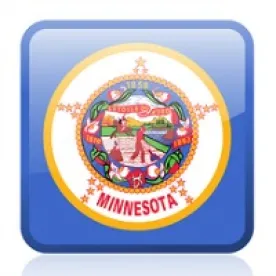In late July 2019, the Minnesota Department of Labor and Industry (DLI) released an update to its FAQ on Minnesota’s new wage theft law, including 37 new questions and answers to further clarify what is expected of employers under the statute. The new FAQ provides important guidance on several key points, while at the same time leaving other important questions unanswered. The following is a summary of several of the most commonly asked questions and DLI’s answers.
New Hire Written Notice Requirements
Provision 181.032(d) imposes a written notice requirement on Minnesota employers, including a disclosure of rate or rates of pay.
One written notice requirement is disclosure of “on what basis” an employee is “exempt” or “non-exempt.” DLI clarified in its FAQ that for the written notice “on what basis” means that an employer must state the legal basis for the exemption from minimum wage, overtime, and other provisions of Minn. Stat., Chapter 177. Although not specifically addressed in the FAQ, this has been understood to mean the specific basis for exemption as provided for under Minn. Stat. 177.23, subd. 7.
While DLI has included new guidance as to the expectation and meaning behind certain notice requirements, it remains unclear whether employers should retain signed copies of the change notices issued to employees when changes to the information required on the notice occur. DLI says that signatures on change notices are not required, but the language of the statute does not clearly support that position. Also, the new Minneapolis Wage Theft ordinance, which goes into effect on January 1, 2020, expressly requires employee signatures on change notices.
Earnings Statements
According to DLI, the Wage Theft Law does not require employers to state whether employees are exempt or non-exempt on employee earnings statements. Rather, this requirement is unique to the new hire written notice. Exempt status means that an employee is exempted from minimum wage and overtime provisions of Minnesota statutes.
Employees or Employers From Outside Minnesota
The requirements that the law imposes on Minnesota employers with employees outside the state, or employers outside the state with employees occasionally working in Minnesota, are especially unclear. This is evidenced by the numerous questions about such scenarios. In all questions regarding such companies or workers, DLI simply says that the provisions apply to any employment covered by Minn. Stat., Chapters 181 or 177, and that application of the law will depend on the application of multiple factors and be highly fact dependent. But the definition of employees under these statutes does not clarify whether employees of Minnesota companies located outside Minnesota, or employees occasionally working in Minnesota for non-Minnesota-based companies, are covered, as there are no specifications as to the time required in Minnesota for the provisions to apply. For example, Minn. Stat. 177.23, subd. 7, defines “employee” simply as “any individual employed by an employer” and then lists several exceptions.
Seasonal Employees
DLI has specified that the written notice must be provided to seasonal employees. Additionally, if a seasonal employee’s employment ends, but he or she is hired again at the beginning of the next season, the employee must receive the written notice when starting employment for the next season.
Bonus Disclosure
DLI discusses bonus disclosures in Question 46 of the most updated FAQ. According to DLI, since a discretionary bonus does not likely constitute a rate of pay under the new notice requirement, it is not required in the initial written notice, nor requires a change notification to employees. Nondiscretionary bonuses, however, must be identified as a rate of pay in the initial written notice and require change notifications. While the case law can provide some guidance on whether a bonus as structured is discretionary or nondiscretionary, it is unclear what standard DLI will be using in enforcing these provisions.
Joint Employers
DLI has stated that if two employers jointly employ an employee, then each employer is responsible for providing the employee with the written notice required under Minn. Stat. 181.032(d). DLI noted, however, that joint employers could satisfy this requirement by providing the employee with a joint written notice that captures all the required information for both employers.
While DLI maintains that it is in “compliance” mode trying to help employers comply with the new requirements, shifting to an enforcement mode is inevitable. Thus, until DLI provides more clarity regarding some remaining questions or begins enforcement, employers may want to consider closely how best to comply.





 />i
/>i

